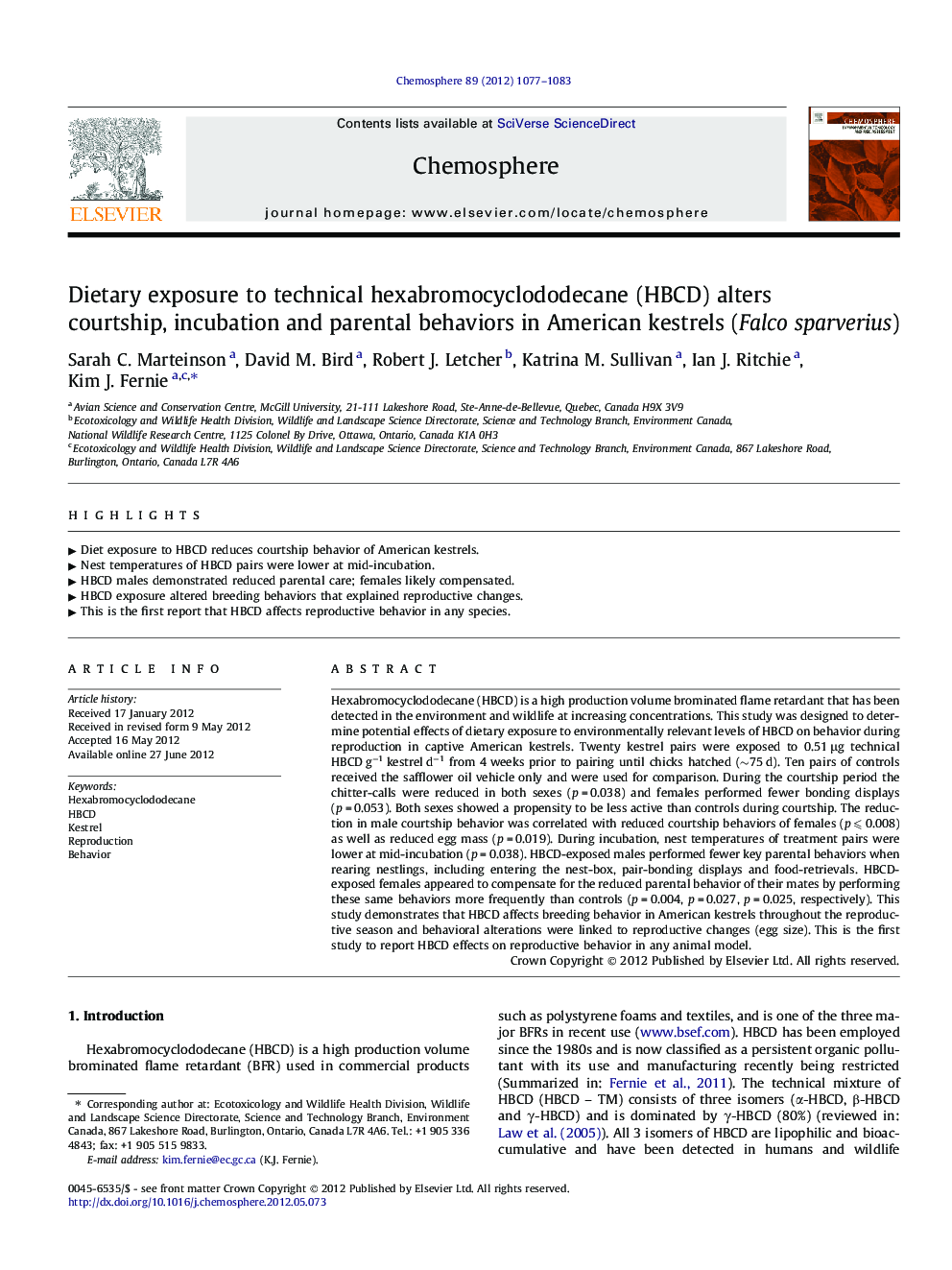| کد مقاله | کد نشریه | سال انتشار | مقاله انگلیسی | نسخه تمام متن |
|---|---|---|---|---|
| 4409819 | 1307512 | 2012 | 7 صفحه PDF | دانلود رایگان |

Hexabromocyclododecane (HBCD) is a high production volume brominated flame retardant that has been detected in the environment and wildlife at increasing concentrations. This study was designed to determine potential effects of dietary exposure to environmentally relevant levels of HBCD on behavior during reproduction in captive American kestrels. Twenty kestrel pairs were exposed to 0.51 μg technical HBCD g−1 kestrel d−1 from 4 weeks prior to pairing until chicks hatched (∼75 d). Ten pairs of controls received the safflower oil vehicle only and were used for comparison. During the courtship period the chitter-calls were reduced in both sexes (p = 0.038) and females performed fewer bonding displays (p = 0.053). Both sexes showed a propensity to be less active than controls during courtship. The reduction in male courtship behavior was correlated with reduced courtship behaviors of females (p ⩽ 0.008) as well as reduced egg mass (p = 0.019). During incubation, nest temperatures of treatment pairs were lower at mid-incubation (p = 0.038). HBCD-exposed males performed fewer key parental behaviors when rearing nestlings, including entering the nest-box, pair-bonding displays and food-retrievals. HBCD-exposed females appeared to compensate for the reduced parental behavior of their mates by performing these same behaviors more frequently than controls (p = 0.004, p = 0.027, p = 0.025, respectively). This study demonstrates that HBCD affects breeding behavior in American kestrels throughout the reproductive season and behavioral alterations were linked to reproductive changes (egg size). This is the first study to report HBCD effects on reproductive behavior in any animal model.
► Diet exposure to HBCD reduces courtship behavior of American kestrels.
► Nest temperatures of HBCD pairs were lower at mid-incubation.
► HBCD males demonstrated reduced parental care; females likely compensated.
► HBCD exposure altered breeding behaviors that explained reproductive changes.
► This is the first report that HBCD affects reproductive behavior in any species.
Journal: Chemosphere - Volume 89, Issue 9, November 2012, Pages 1077–1083